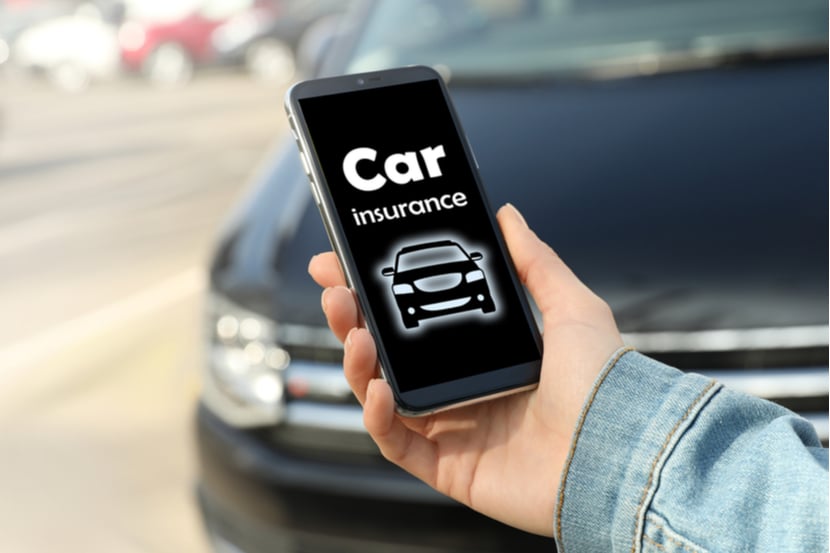You might think a little white lie isn't a big deal when getting a car insurance policy. But it's a pretty major deal, and it carries some major consequences.
Lying or not disclosing certain information can land you in hot water with your insurer. It might affect your ability to claim if you need to, and could invalidate your policy.

What happens if I lie to my insurance company?
Well, lying to your insurer is a form of fraud. So, if you do lie, and you're caught, the potential consequences can be severe. There are a number of sanctions you could face, such as:
- Your policy could be invalidated or terminated
- Your claims could be rejected
- Claims made against you might not be paid out
- You could face additional charges
- You might have to tell future insurance companies about your non-disclosure
- Other mainstream insurance companies might refuse to insure you
If you lie or don’t answer your insurer's questions, it’s called non-disclosure. By doing this, you run the risk that any claim you make might not be paid, and your policy might be terminated.
This applies even if the inaccurate information has no bearing on your claim.
What wrong information could invalidate my car insurance policy?
In some cases, the information you disclose might seem insignificant.
But your insurer could invalidate your car insurance if you’ve failed to disclose relevant or important information. Particularly if the company thinks you’ve done this to get a cheaper car insurance price.
Some common types of misreported information are:
Modifications
If you’re making alterations to your car that could change how it performs or make it more valuable, it’s important to let your insurer know in advance.
Modifications such as a larger exhaust or expensive wheel trims can increase your car's value.
You should contact your insurer before you make modifications. It's likely that your policy will be recalculated and, in some cases, cost more as a result.
This can help you decide whether the changes are worth the extra expense.
How you use the vehicle
You'll need to make sure you use your car as you've described to your insurer.
What does this mean? Typically, insurers ask you when getting a quote what you plan on using your car for throughout your policy.
For example, you say your car is to be used solely for ‘social, domestic and pleasure’ reasons. But then, if you use it as part of your job, you could put your cover at risk. This doesn't go down well with insurers!
You should also let your insurer know if you use your vehicle to commute to work, even if it’s just driving to the train station. If you’re regularly on the road during rush hour, there’s a greater chance you could be in an accident.
Who's driving the car
This is potentially the easiest aspect of your policy to overlook. But make no mistake, it can carry serious consequences if you're not honest with the information you disclose.
You should make sure you're the main driver of the policy if that's what you've told the insurer.
Sometimes, people declare themselves as the main driver of the policy when it's actually someone else. This is an illegal practice known as fronting.
For example, a parent might say they’re the main driver and list their child as an additional driver, even though it's their child who’s driving it most.
Those who commit fronting tend to do it in order to save money. Young drivers tend to pay considerably more for car insurance than those in other age groups. But costs tend to be lower if the young person is a named driver.
Your address
Different areas have different crime rates, and where you live might impact the likelihood of your car being stolen.
You could have an identical car and set of circumstances as someone who lives a couple of streets around the corner from where you live, for example. Despite this, you could end up paying vastly different amounts based on your address and postcode.
But you still shouldn't lie about your address - your policy might be invalidated, leaving you without cover.
Your occupation
It goes without saying, but some professions carry a greater risk than others. This means your insurance could cost more depending on your job.
For example, those working from home or in a fixed office location could pay significantly less for car insurance than delivery drivers. Why? Delivery drivers spend far more time on the road due to the nature of their profession, so insurers factor this into any potential quote.
When you're looking for a car insurance quote, be as accurate as you can about your profession. Lying about your profession to get a cheaper car insurance policy is a big no-no. You could even be charged with insurance fraud.
Do I need to inform my insurance company of a speeding ticket?
Not immediately, but it does depend on your insurer and policy.
Some insurance providers might require you to inform them of any fines or penalty points you receive, while others don't. It's a different story when your policy comes up for renewal or when you're searching for new quotes.
It's pretty standard for insurers to ask you about any fines, penalty points or motor convictions. And if they do, you should be honest with your response.
You might have the option to take a speed awareness course to avoid receiving penalty points. In this instance, you usually don’t have to let your insurer know until you come to renew your policy.
How long do you have to declare points for insurance?
Points for motoring offences normally stay on your licence for 4 years. But if you’ve had a prison sentence for 4 years or more, the conviction will always be ‘unspent’.
If you get a quote with us, we’ll ask for any points you've had in the past 5 years – so you might need to declare penalty points even though they’re ‘spent’.
We'll also ask you:
- The date of the driving conviction
- The driving conviction code
- The number of points for the conviction
- The fine amount
- The ban length (if there was no ban, you enter 0)
- Whether you were breathalysed
- Whether the offence was accident related
- Whether you have any unspent motoring convictions
How to get cheaper car insurance the right way
We all want cheaper car insurance! Fortunately, there are several tips to help reduce your car insurance costs:
-
Fit car security devices like alarms or immobilisers and park off the street overnight.
-
Avoid modifications that are designed to make your car stand out or perform better.
-
Choose a higher voluntary excess. This normally reduces your costs, although it does mean that you might have to contribute more to the cost of any claim out of your own pocket.
-
Consider getting a black box insurance policy, particularly if you’re a younger, less experienced driver. Black box insurance could also be worth looking at if you don’t use your car much and have a low annual mileage.
-
Get a dash cam fitted. Some insurers offer discounts to drivers with dashcams.

